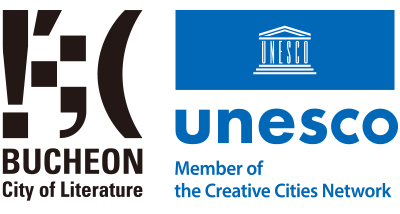
Purpose

Since the dawn of humanity, history and literature have constantly documented the lives and stories of migrating bodies. Bucheon is a city that embodies Korea’s process of urbanization and industrialization, and is home to a variety of people of walks of life. This is described through literature in the iconic 1980s novel A Distant and Beautiful Place. Bucheon is also home to the Sosa Opportunity Center, established by Nobel Prize in Literature winner Pearl S. Buck to help children born to Koreans and foreign military personnel who were stationed in Korea during the Korean War.
The Bucheon Diaspora Literary Award (BUDILA) seeks to bring together Bucheon’s historical and cultural background. The project has been supported by the international community ever since it was first proposed upon Bucheon’s inception into the UNESCO Creative Cities Network in November 2017. A new winner will be awarded every year from now on.
Since the dawn of humanity, our species has always been moving. Humans have migrated to unknown territories for survival, for a better life. In each footstep is a story and these stories have filled the pages of human history. Even for voluntary migrants, the homeland is a place of longing and belonging, and the place of return. For those who were displaced by force, the homeland is an ardent dream and destined resting-place.
Diaspora was once a term restricted to the forced dispersion of the Jewish population, who preserved their ethnic identity and hopes of homecoming for over a thousand years. But the history of displacement and yearning is not exclusive. No cities are built without migration. Countless bodies are crossing the borders of state and nation every day to create new diasporic communities.
Literature has long documented the lives and stories of human migration. Writers would draw from their own experience as immigrants or find inspiration in foreign lands. The expansion of empires and colonialism in the 19th century increased migration for both colonizers and the colonized. Writers of the empire found new material in the expanded territories for their works, while writers of the colonies sublimated the painful realities of imperialism in their literature.
Diasporas are expanding with the march of globalization. Diasporic communities have fostered intercultural exchanges and introduced hybrid cultures. The literary imagination is crossing new cultural borders, and writers and readers are exploring new realms of diasporic literature. Contemporary literature is broadening its embrace through diasporas.
The expansion of diasporic communities is enriching Korean literature as well. The Korean diaspora encompasses over 7 million people around the globe, with each community producing new literary achievements based on their own lives and history. The immigrants in Korea are also burgeoning with stories that are challenging conventional Korean literature.
As a UNESCO Creative City of Literature, Bucheon recognizes the potential and accomplishments of diaspora literature. Collective identities such as race, ethnicity, and nationality continue to divide the world with hostility and hatred. The recent pandemic has highlighted the long path we have ahead of us. Diasporas are the thread that weaves these splits together through cultural exchange, and transforms pain and sacrifice into a patchwork of tolerance and harmony.
Diaspora literature is the sublimation of historical efforts, lived experiences, and the process of identity formation. It is a literature that communicates hospitality and collaboration instead of hatred and discrimination. It is not limited to writers from a diaspora.
The citizens of Bucheon believe in the transformative power of literature. By launching the Bucheon Diaspora Literary Award, we seek to uplift the spirits of solidarity, hospitality, and collaboration. Along with UNESCO Creative Cities Network, Bucheon embarks on its long journey towards transforming the world through literature.